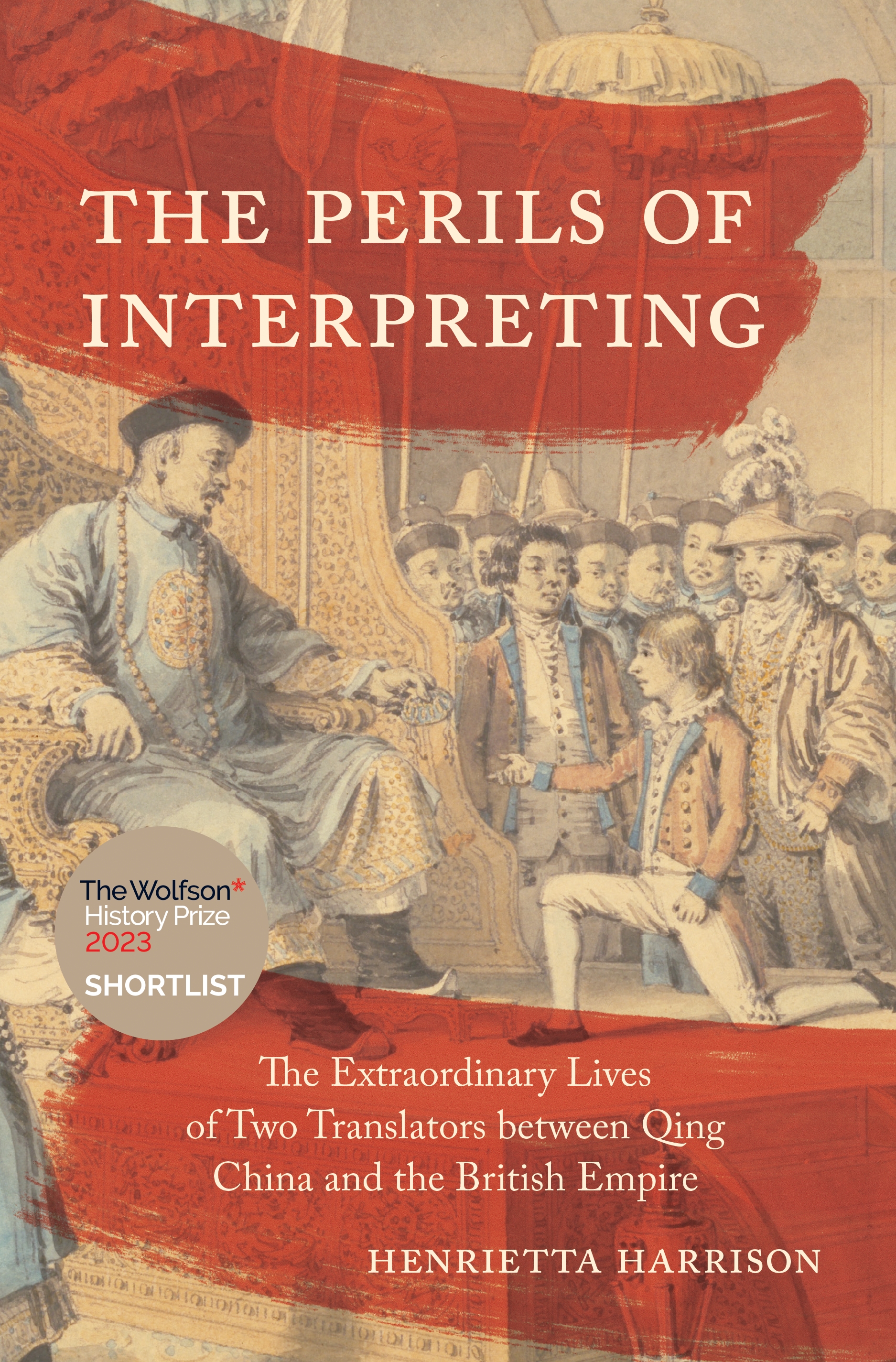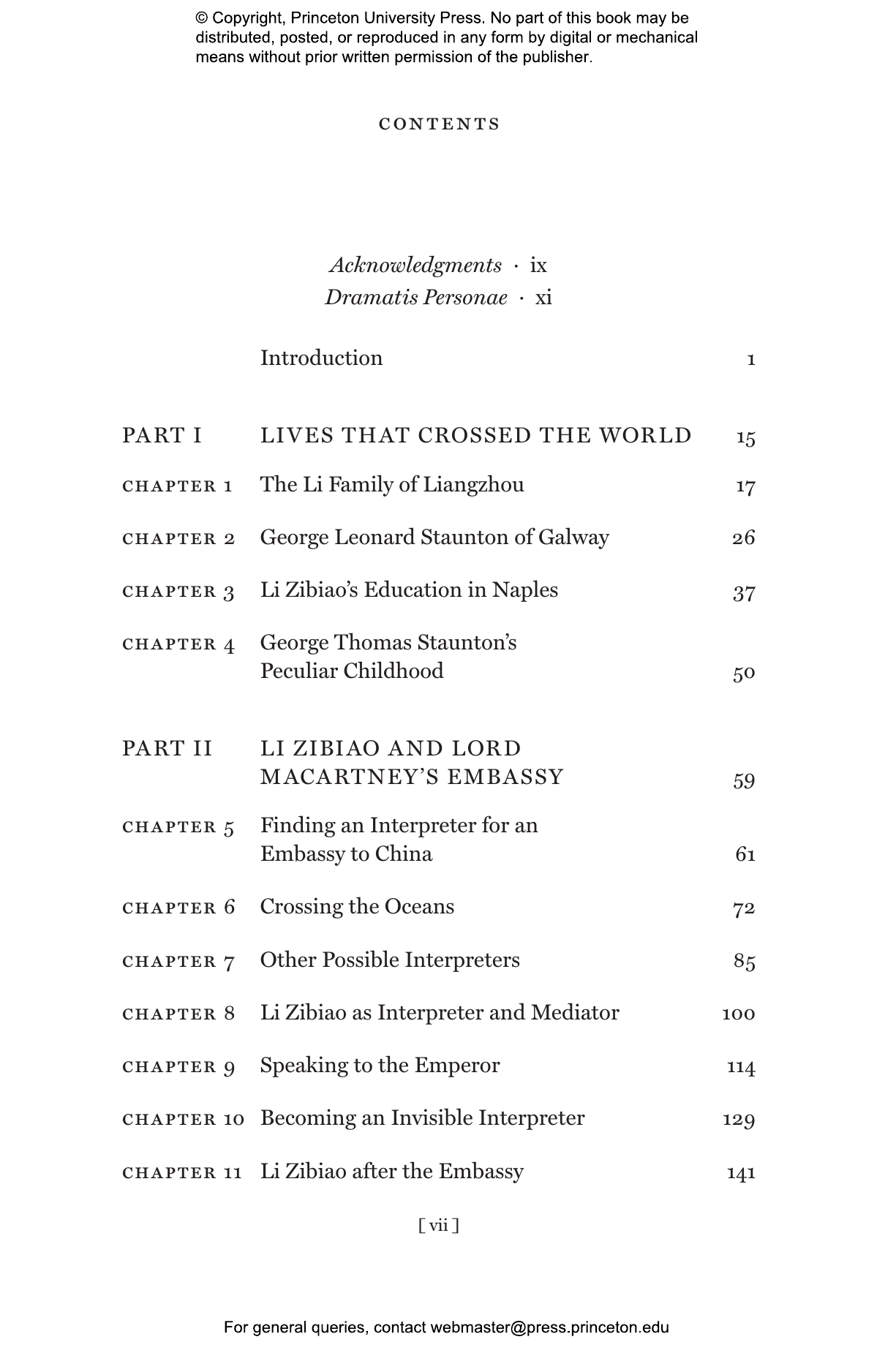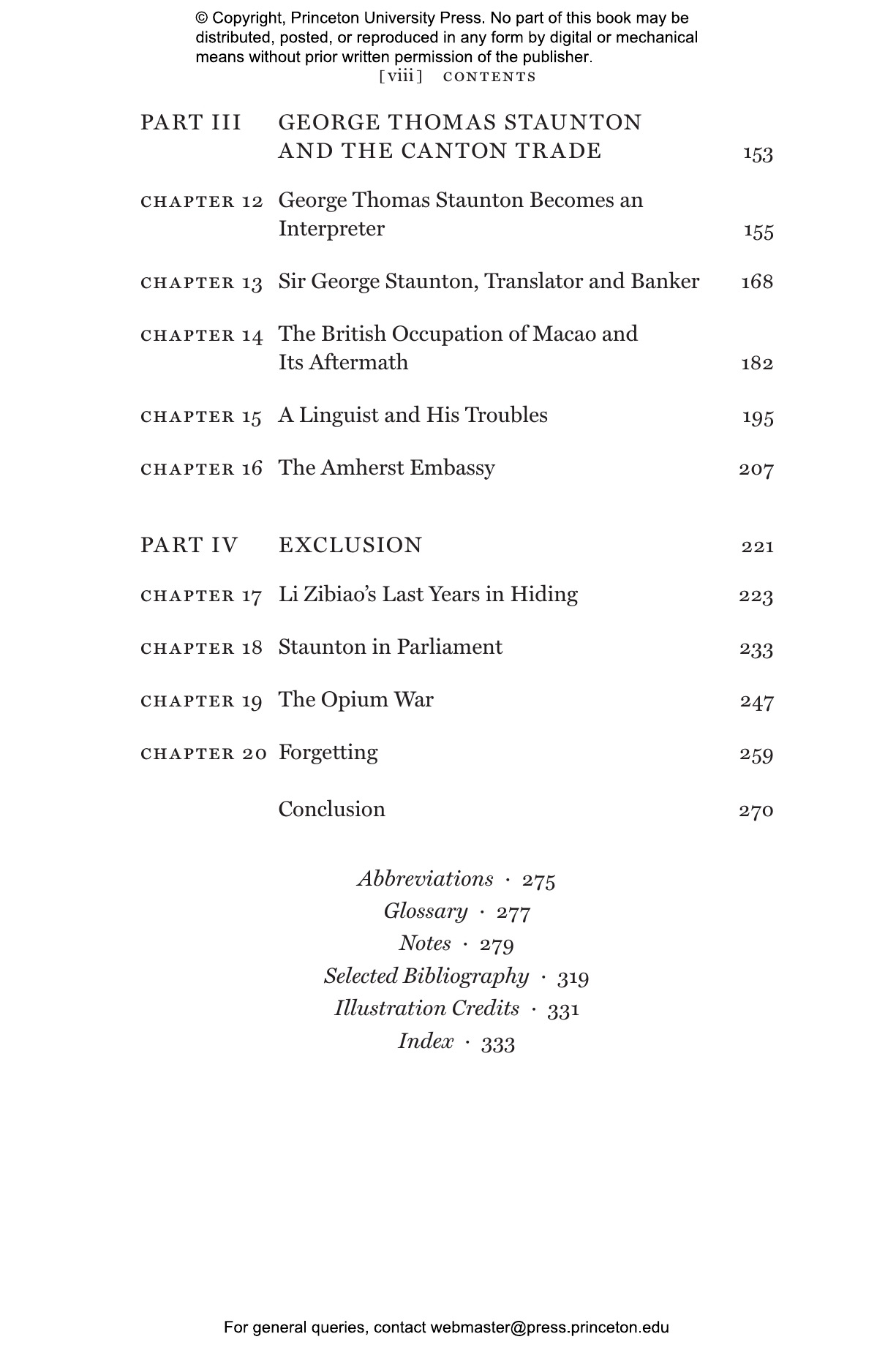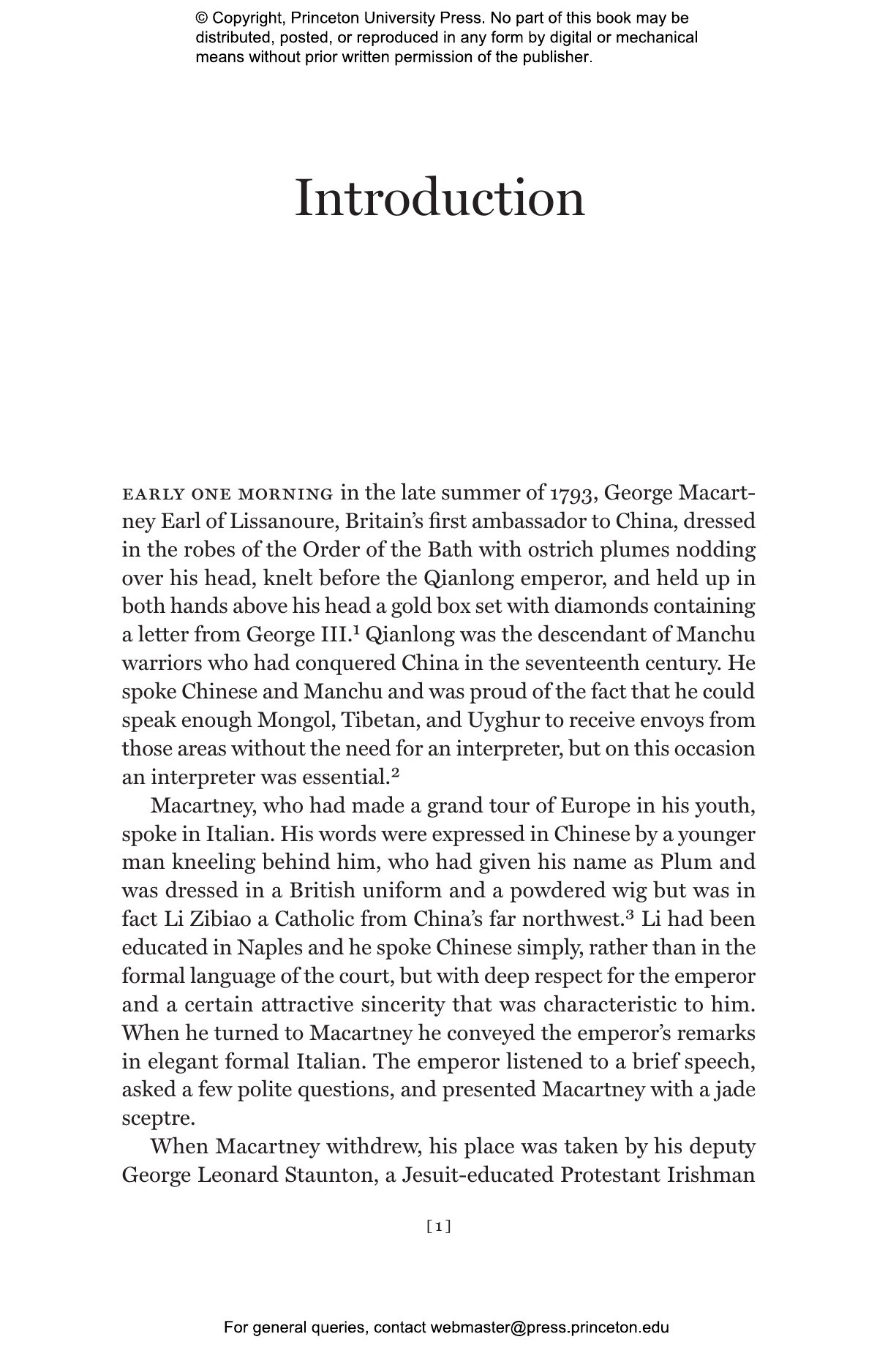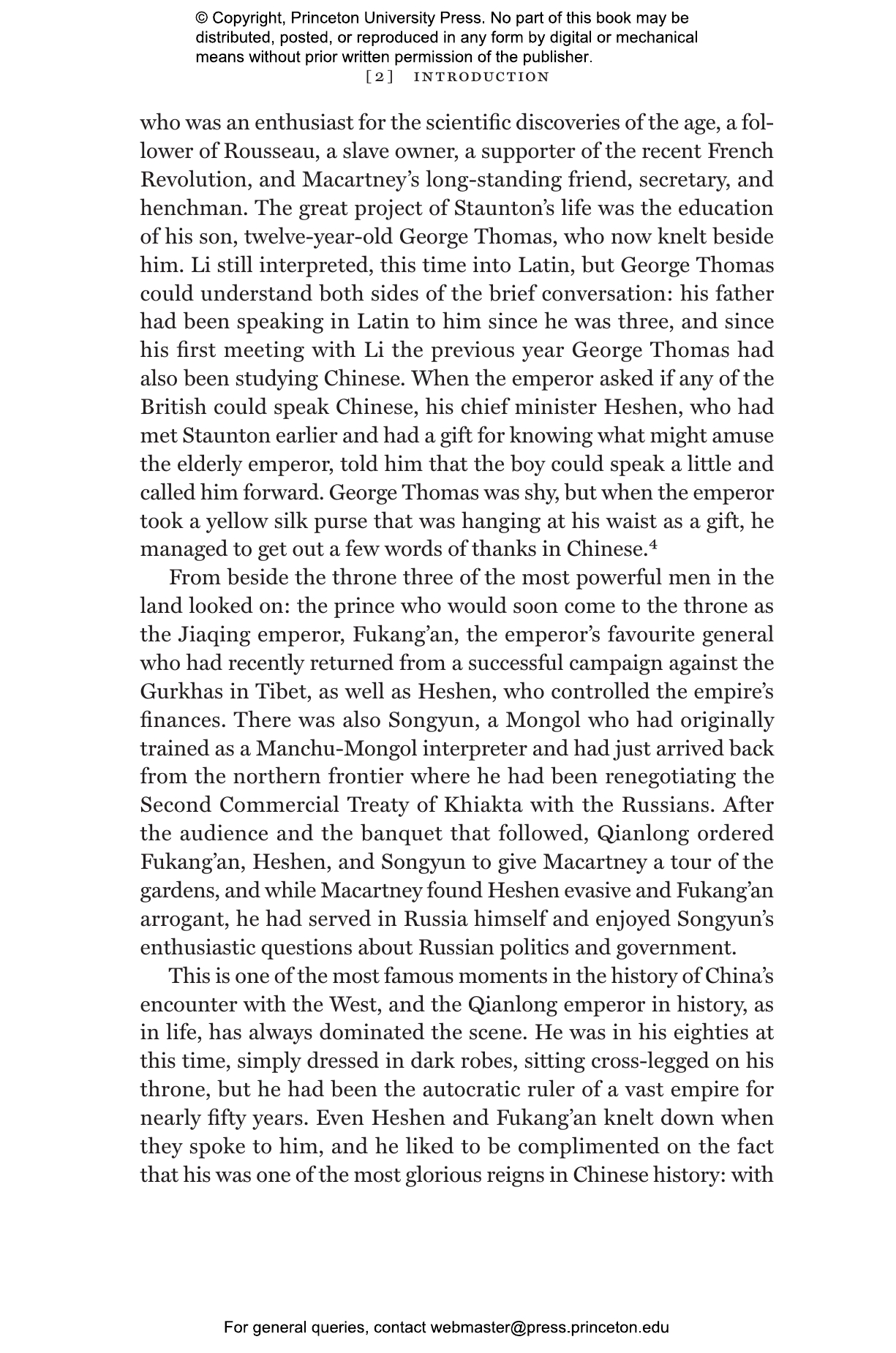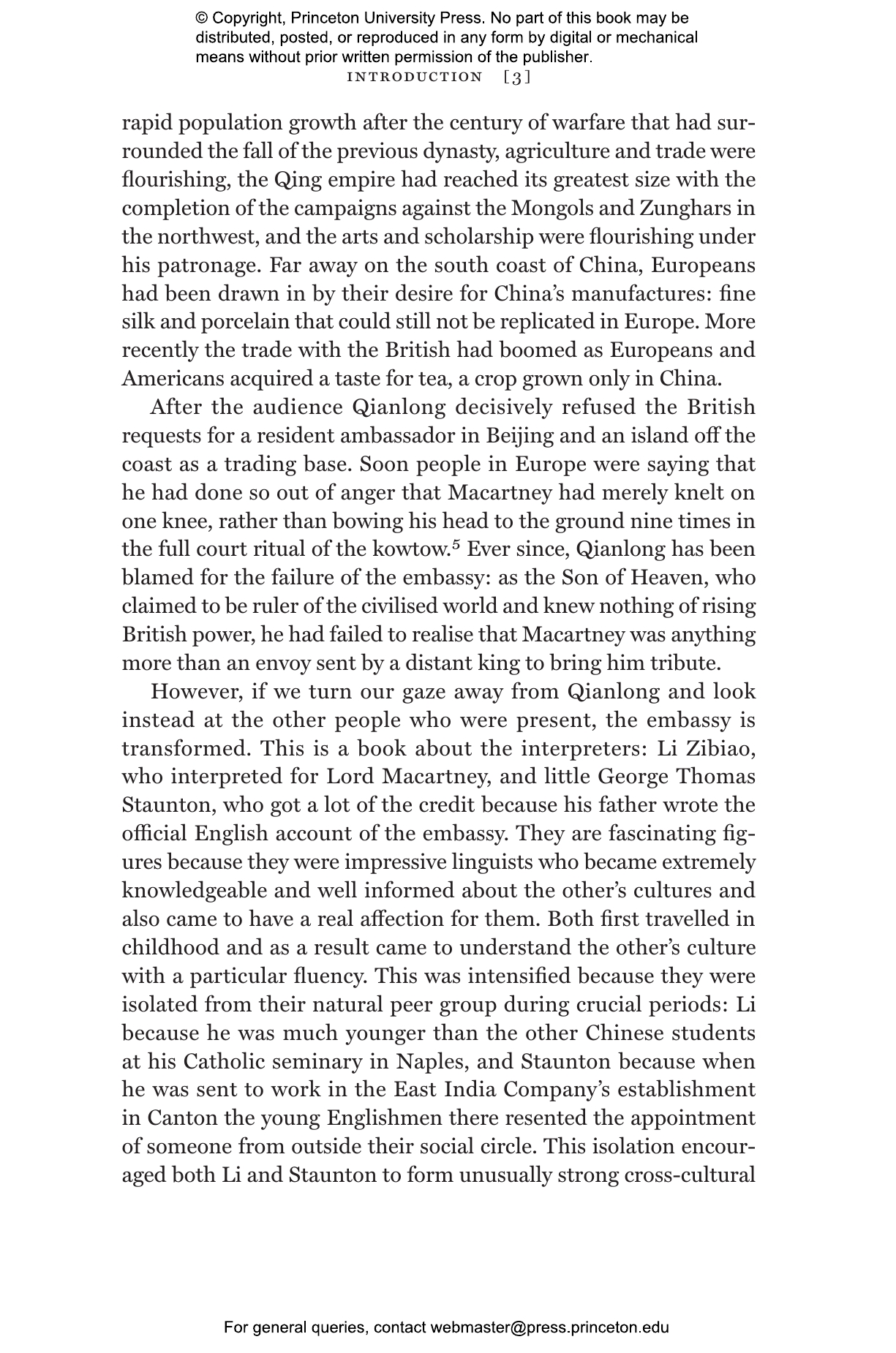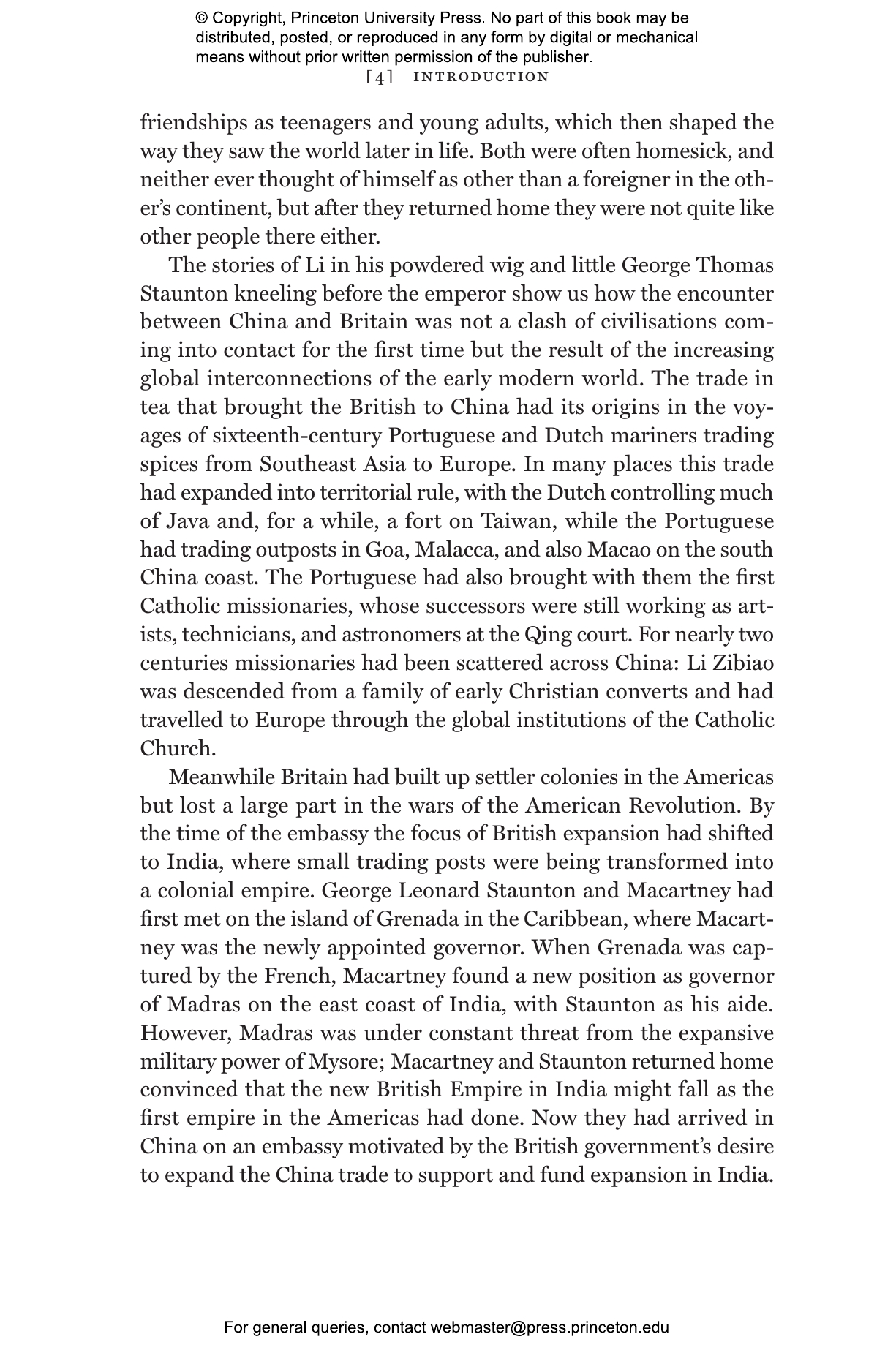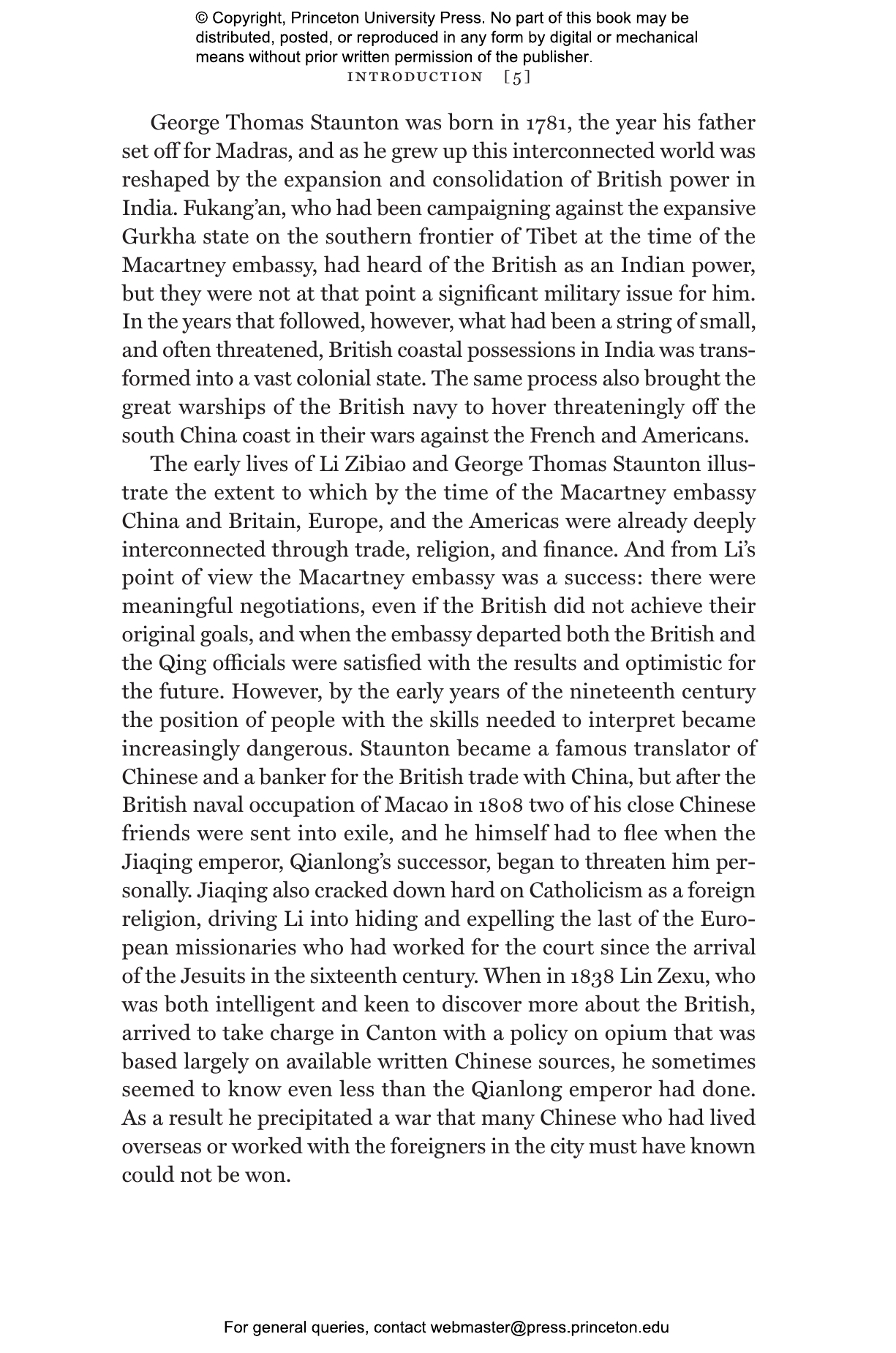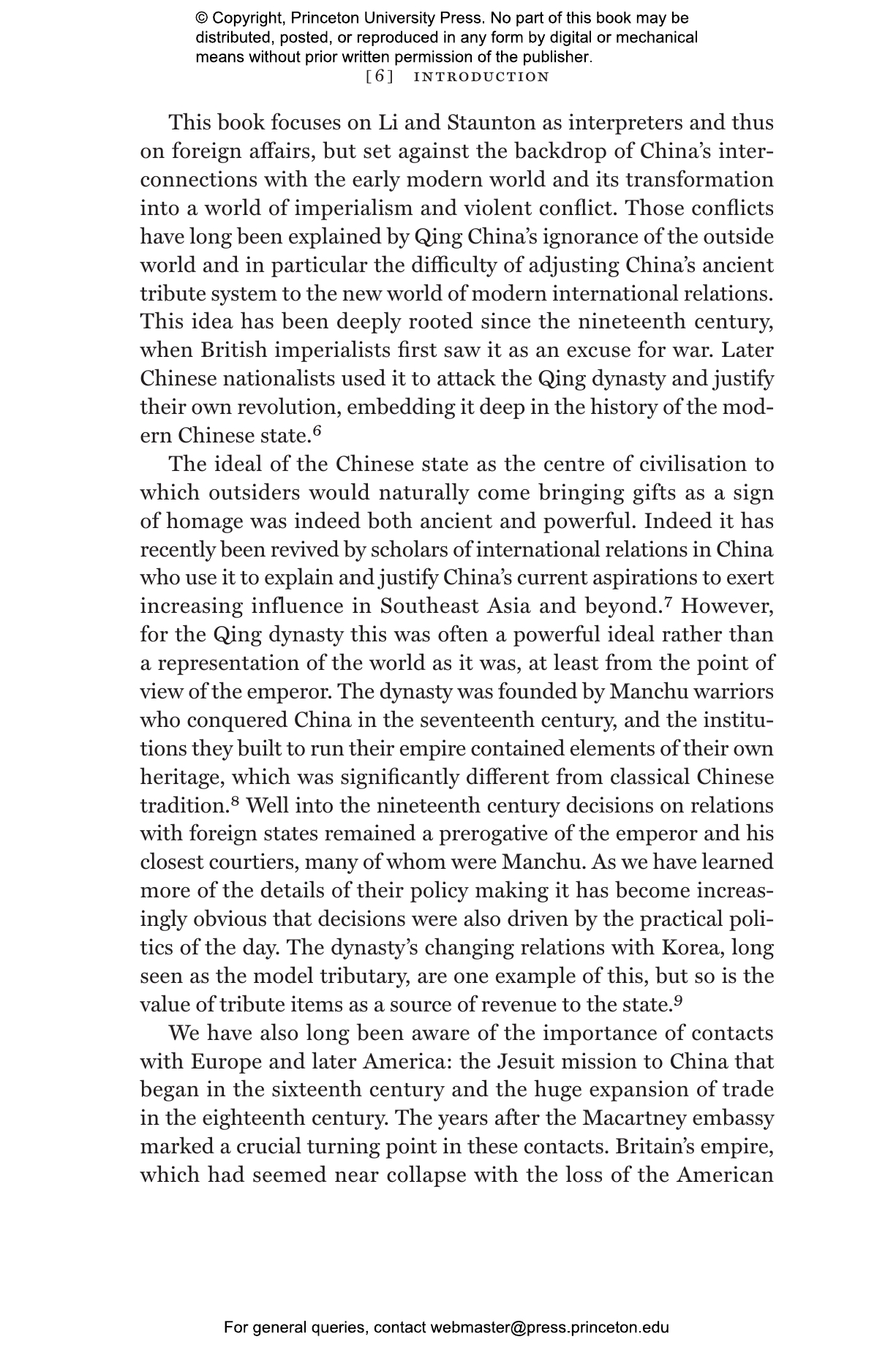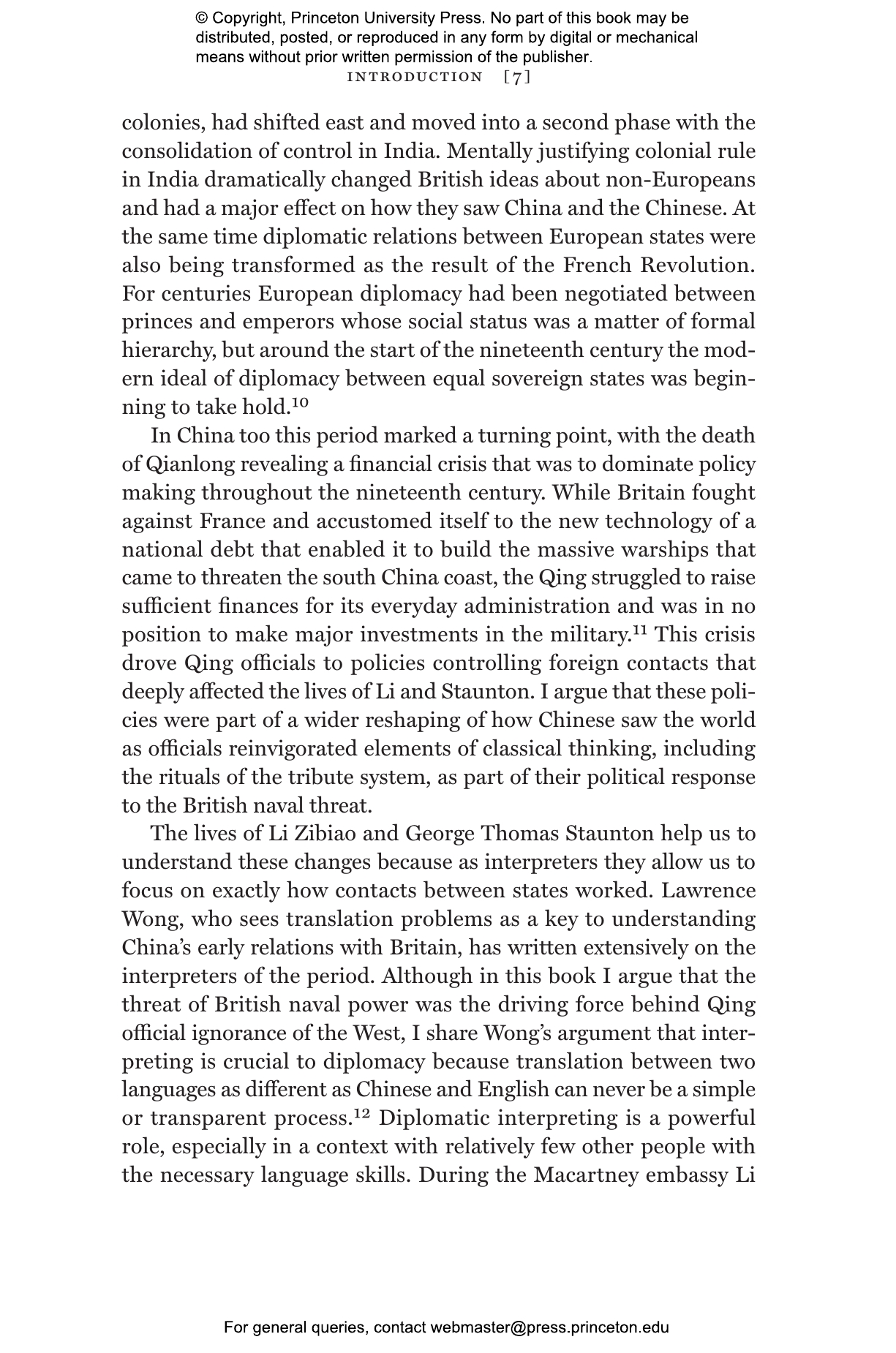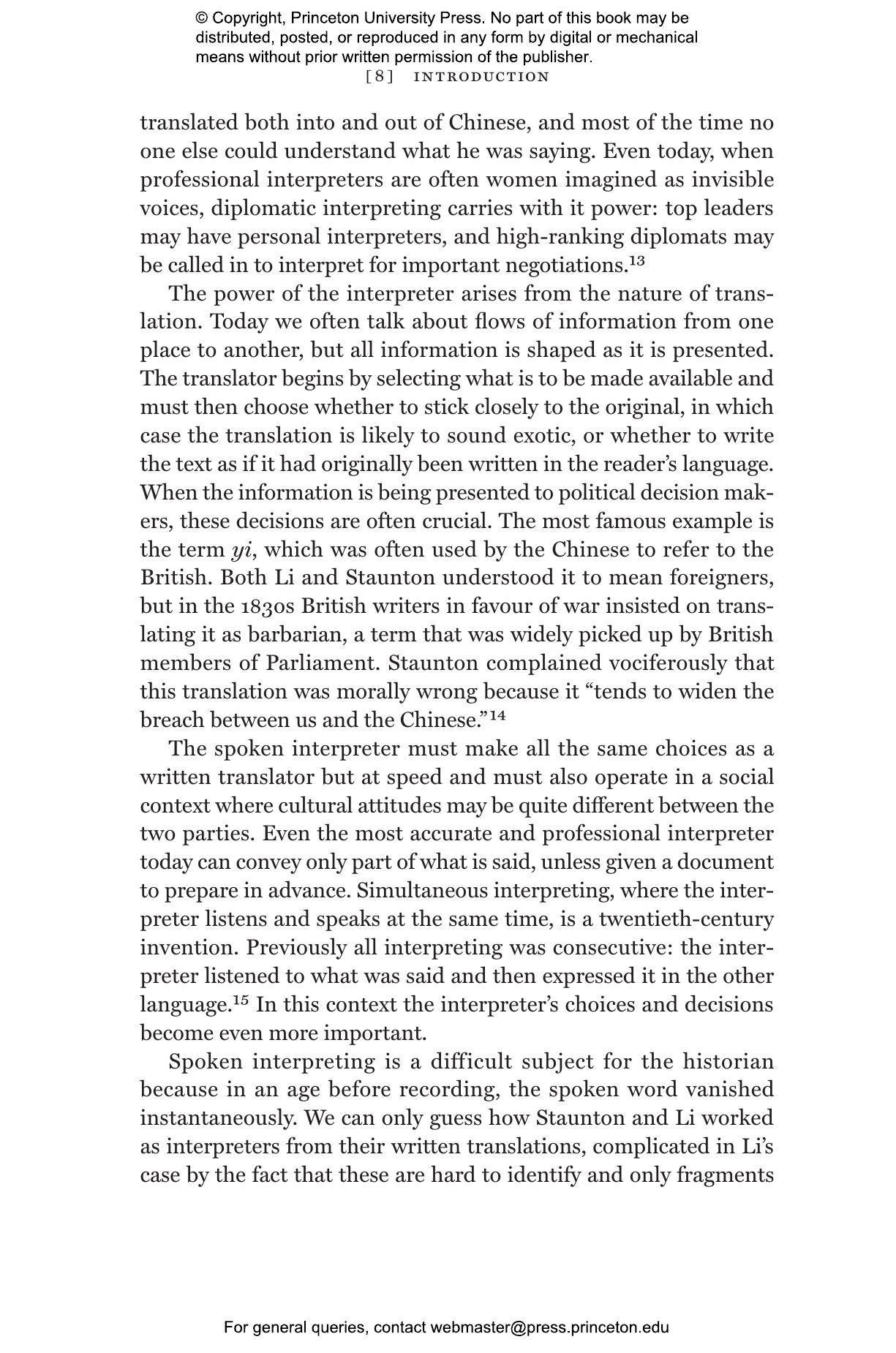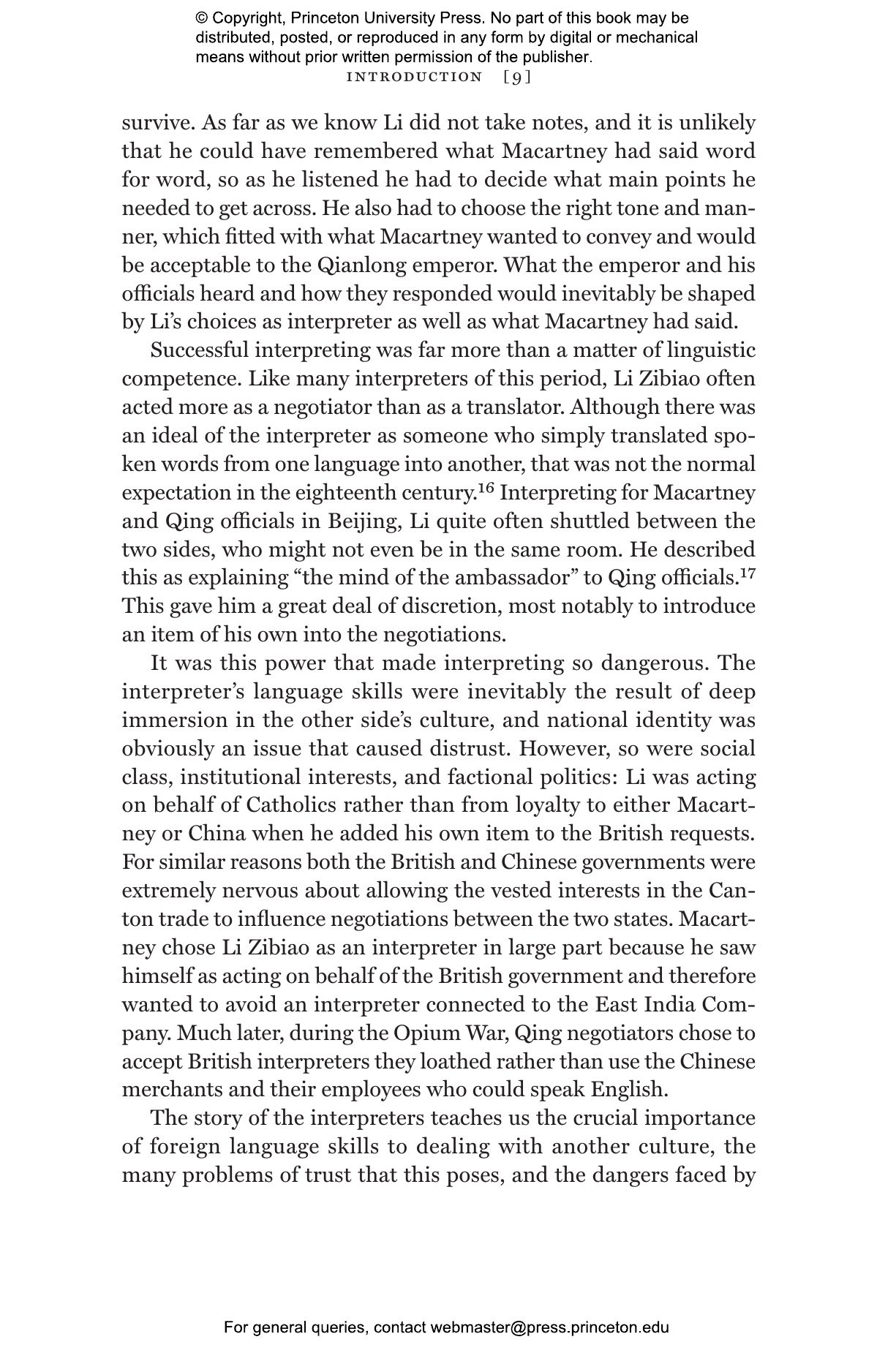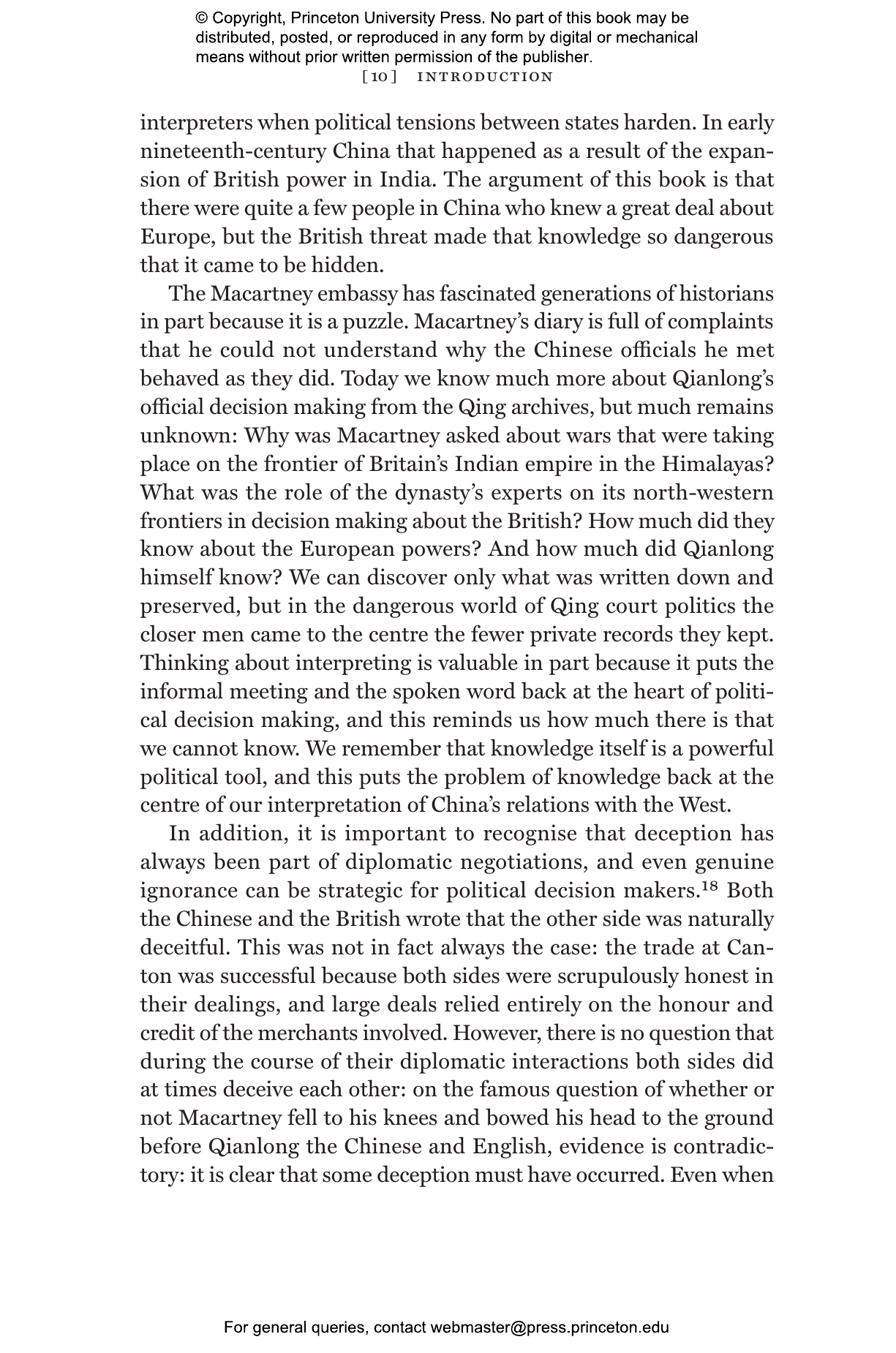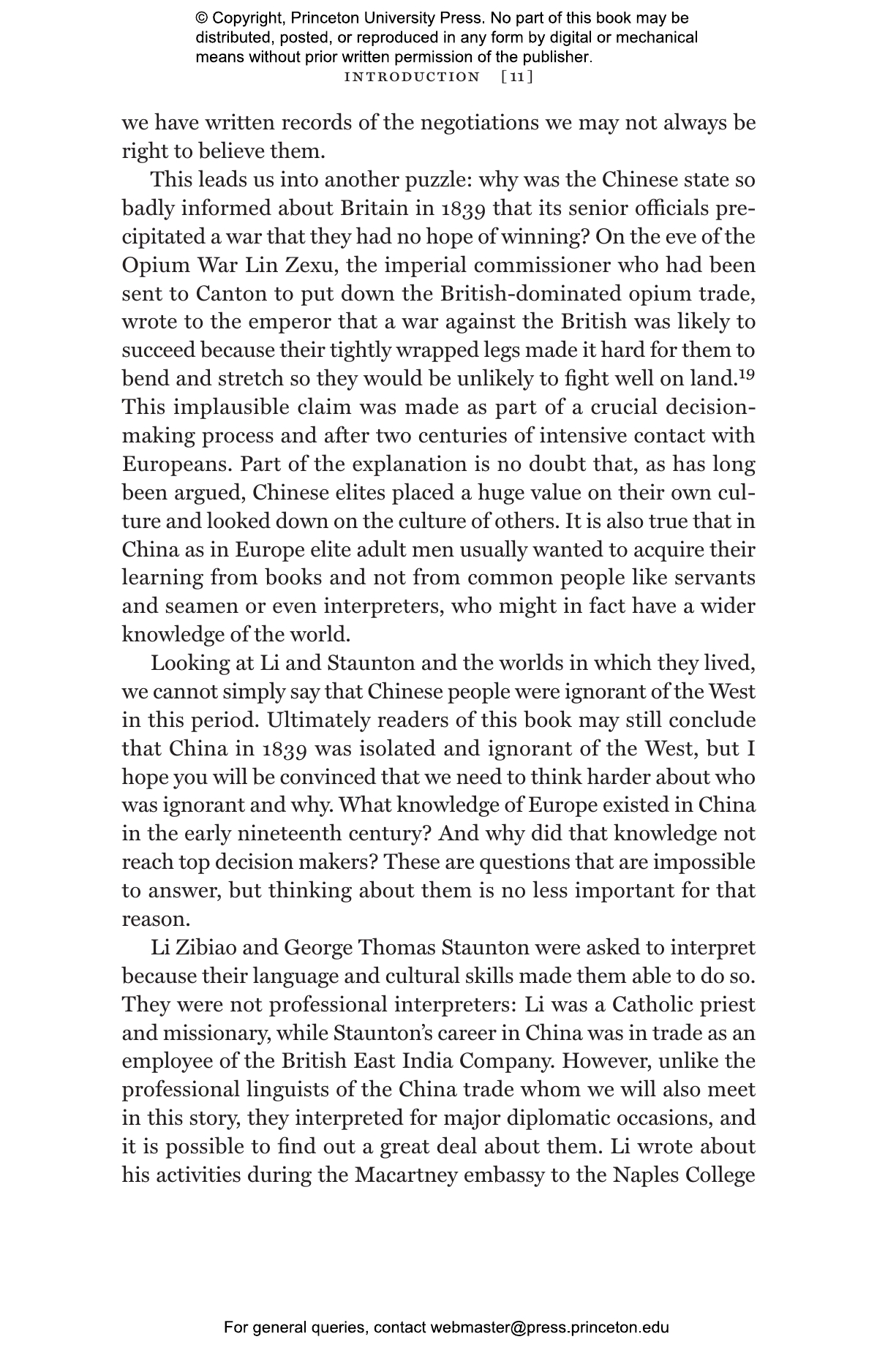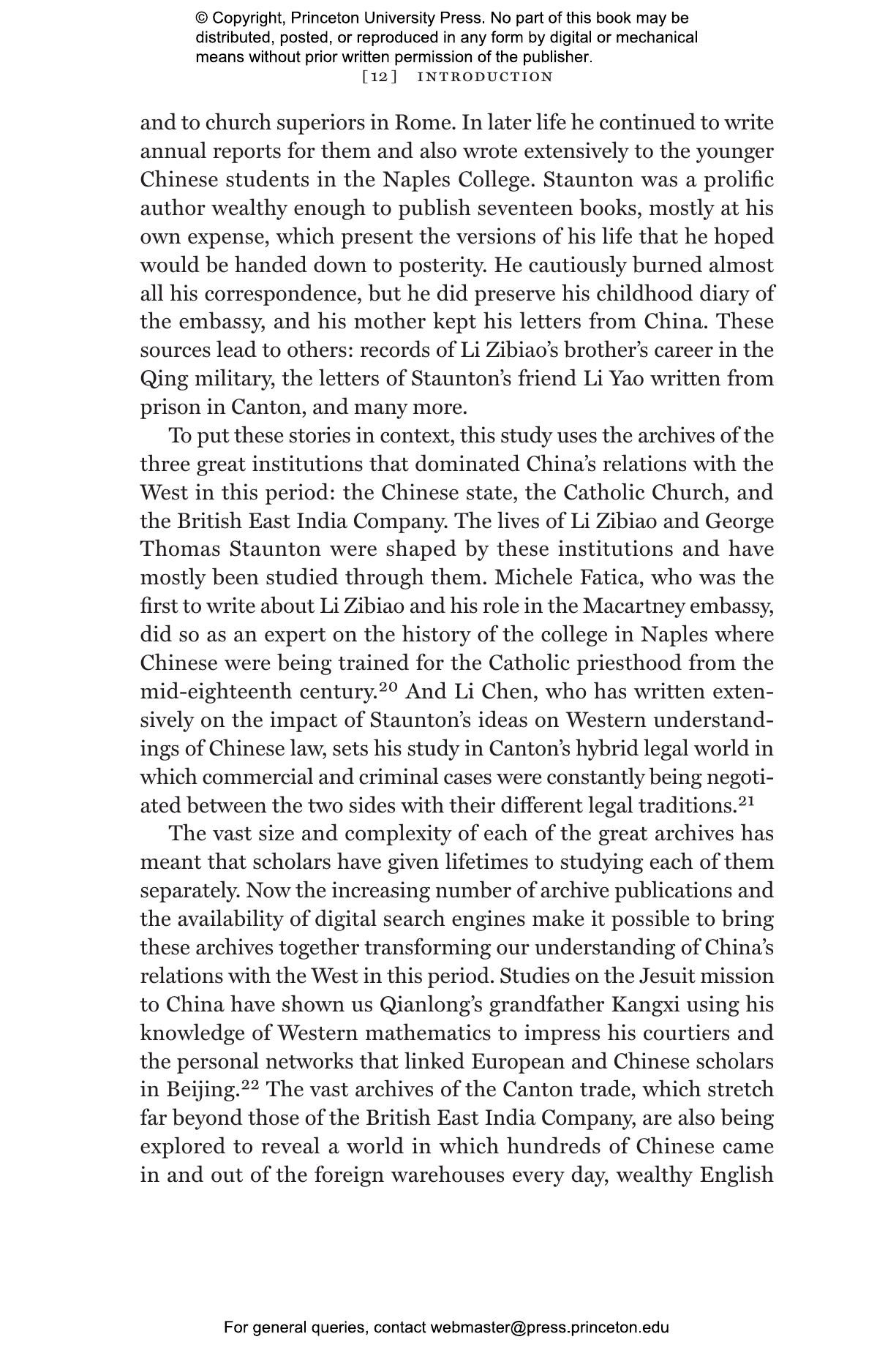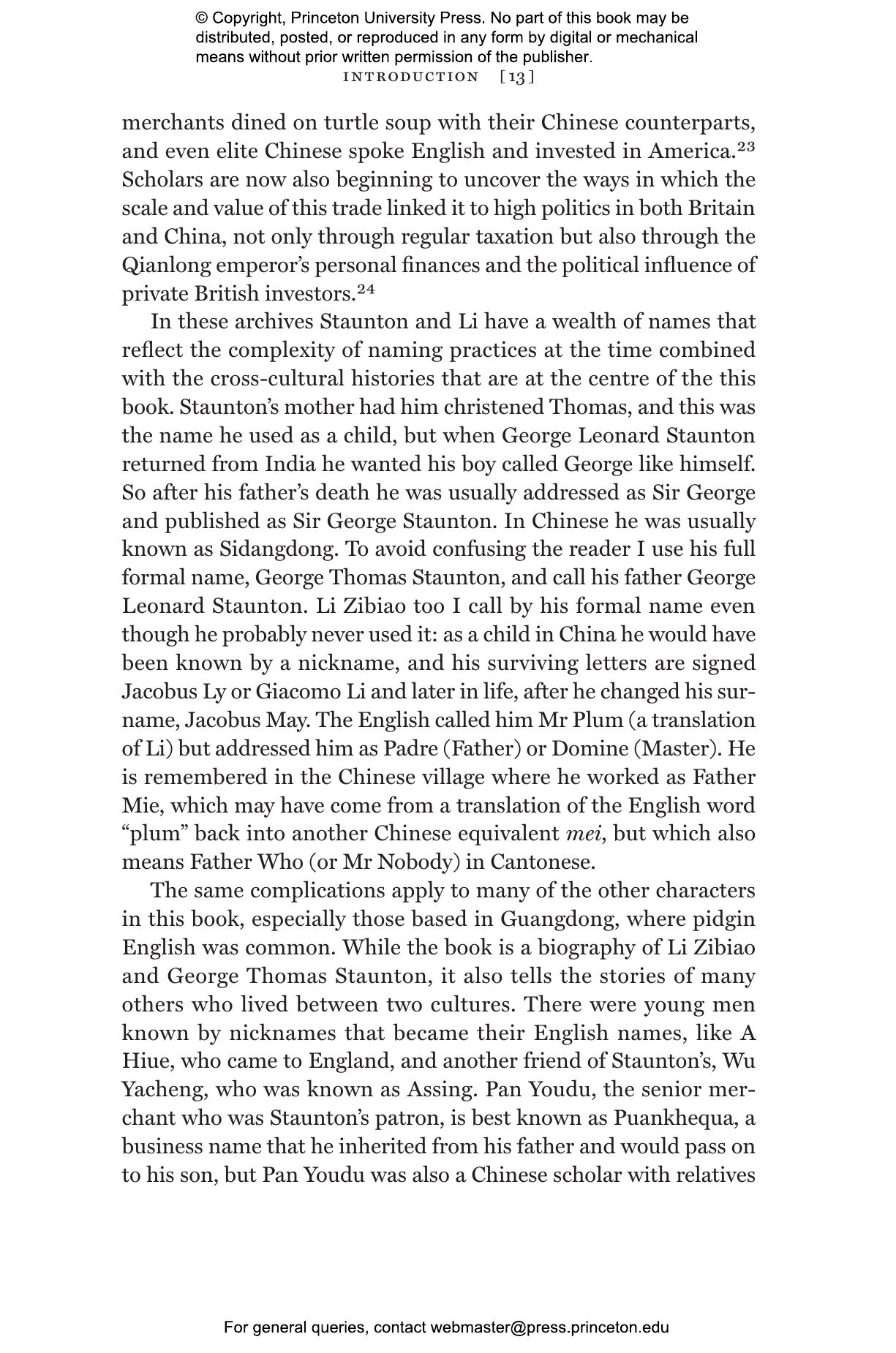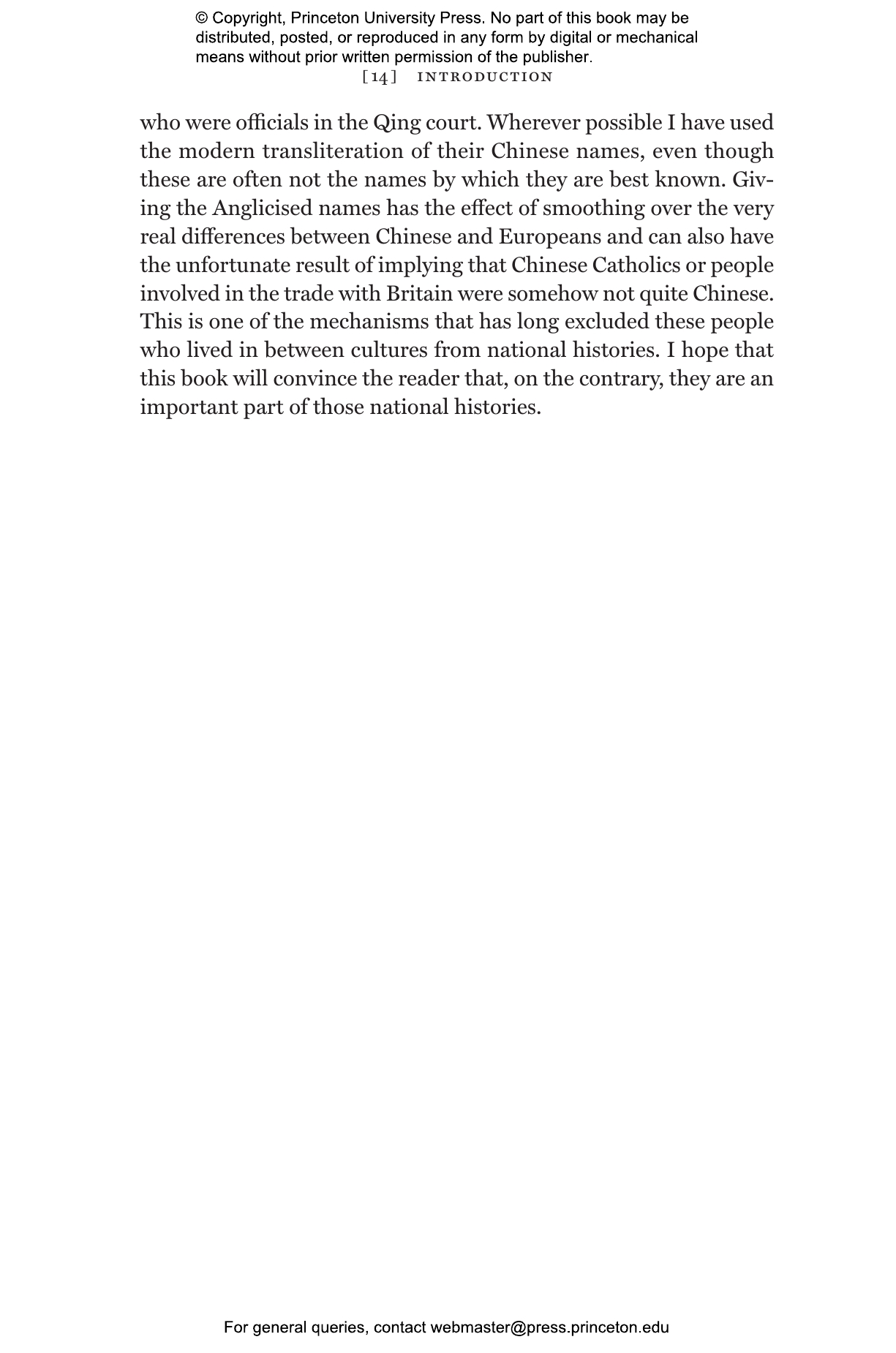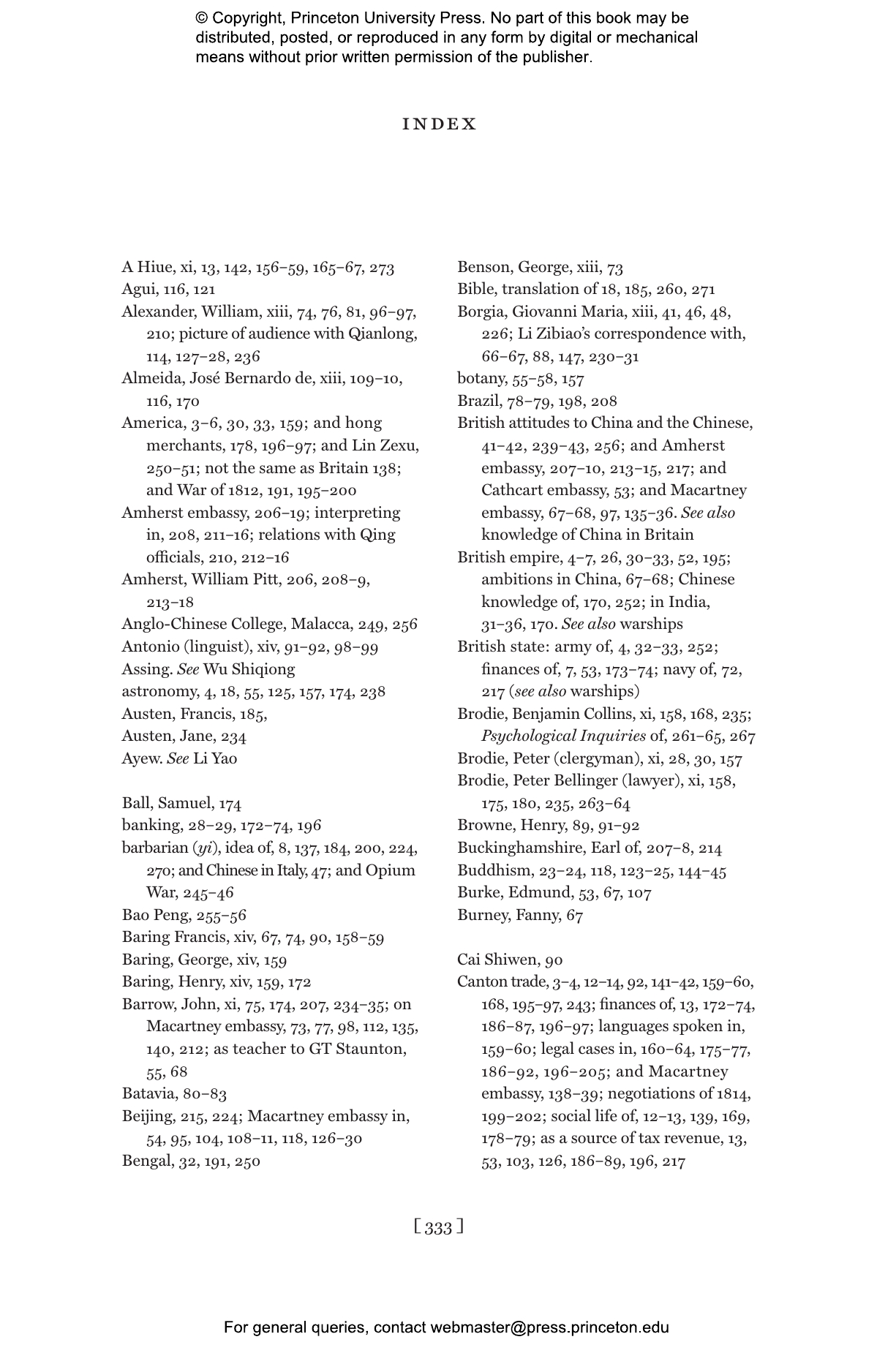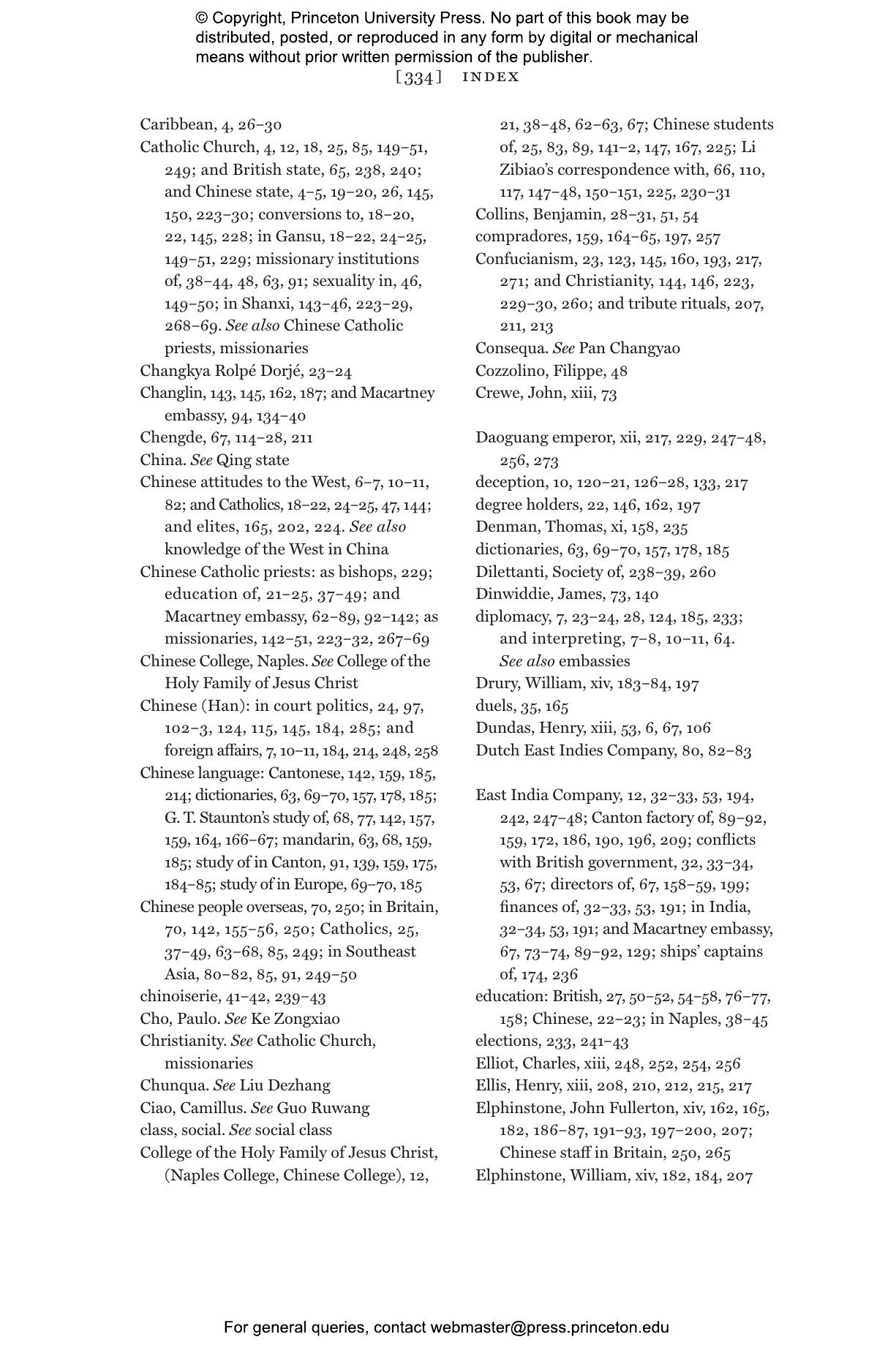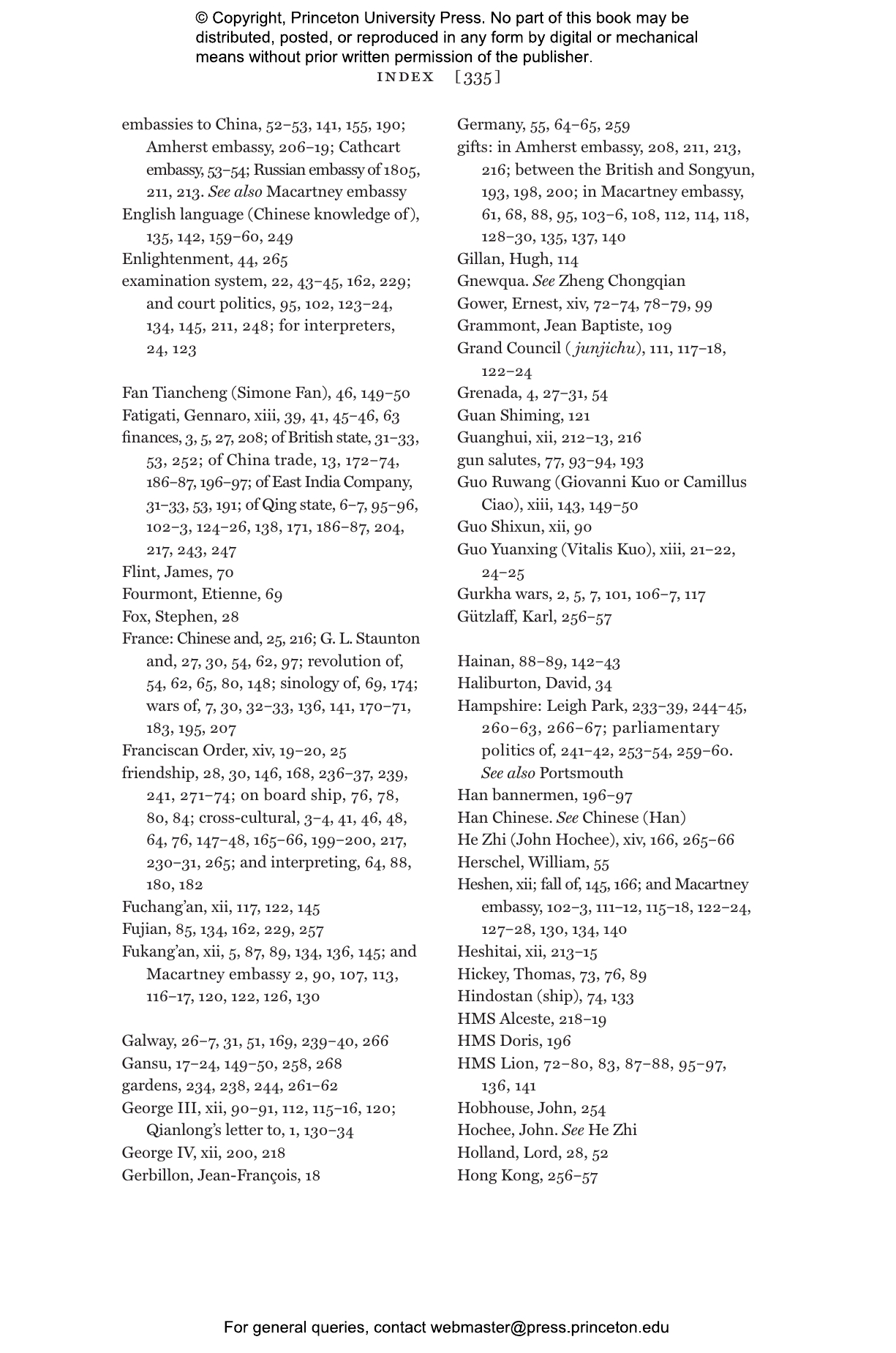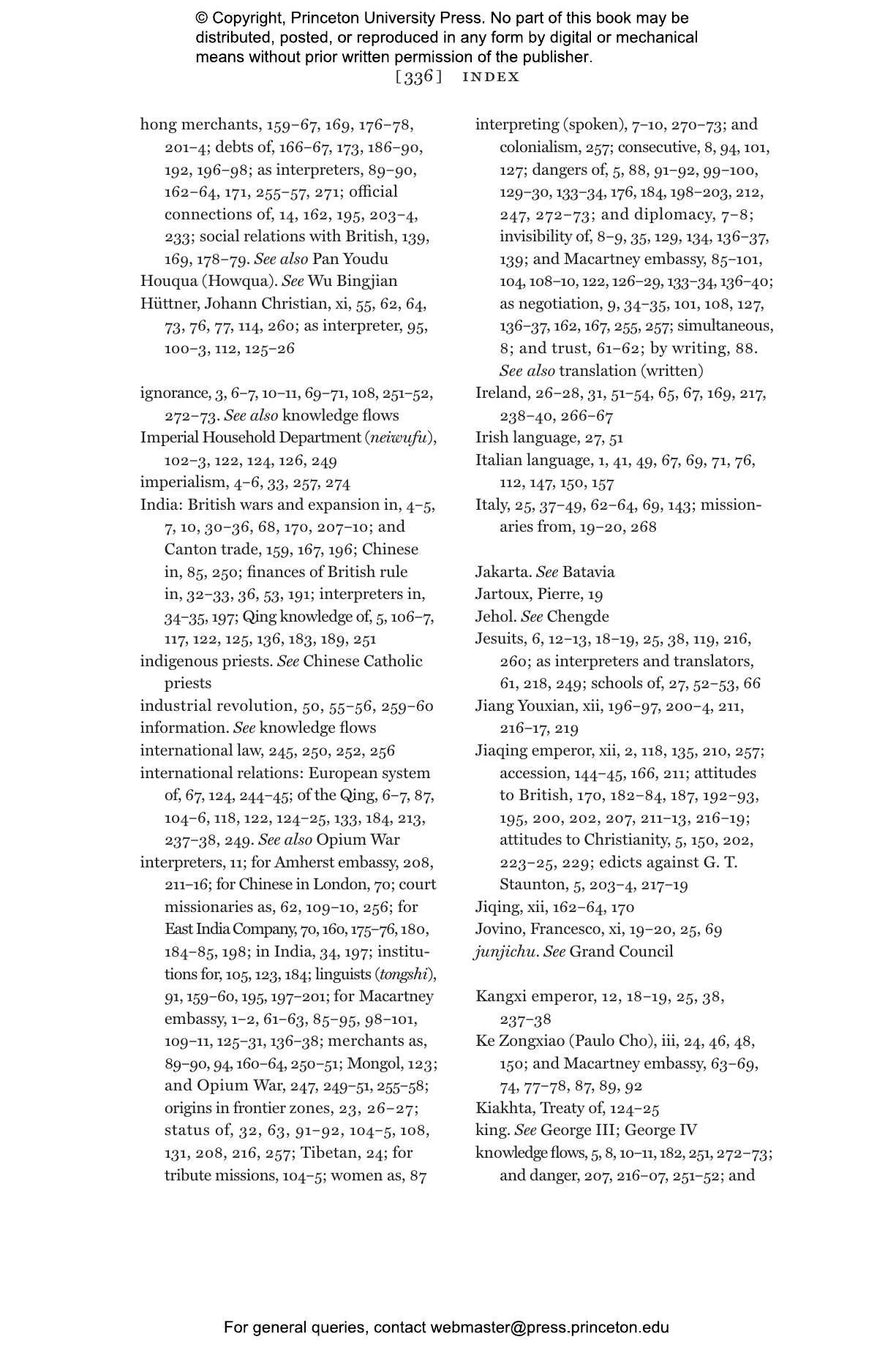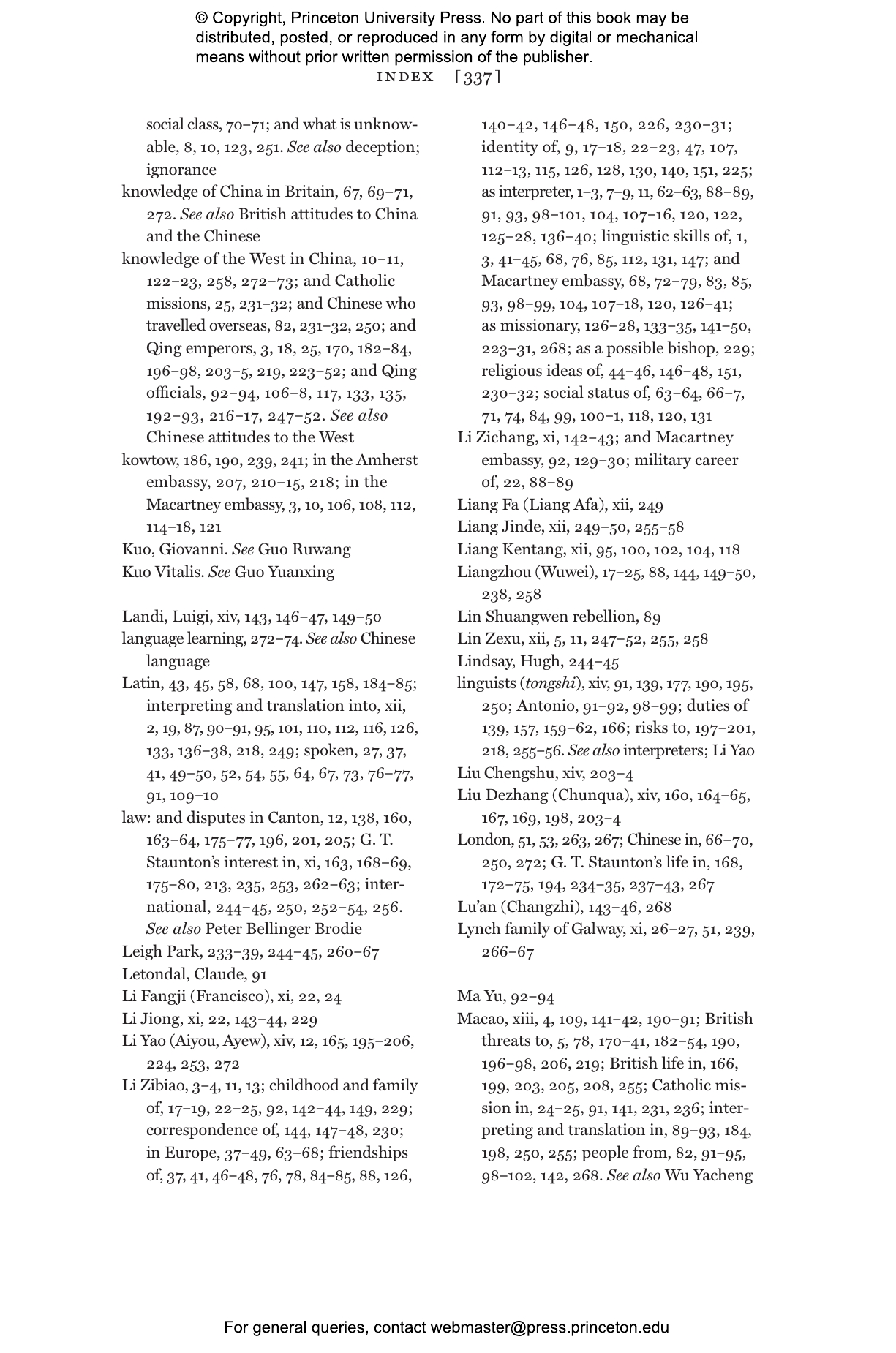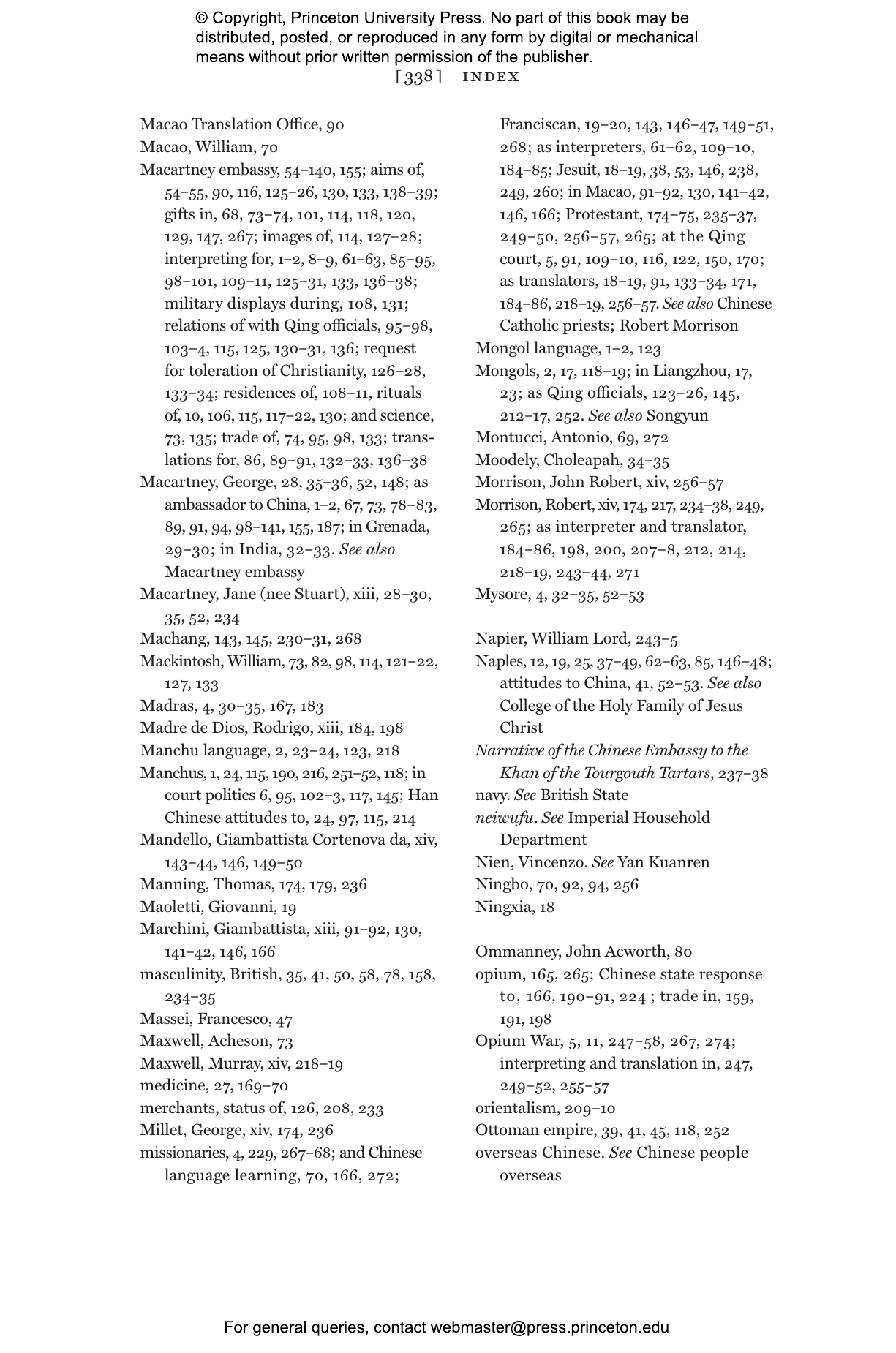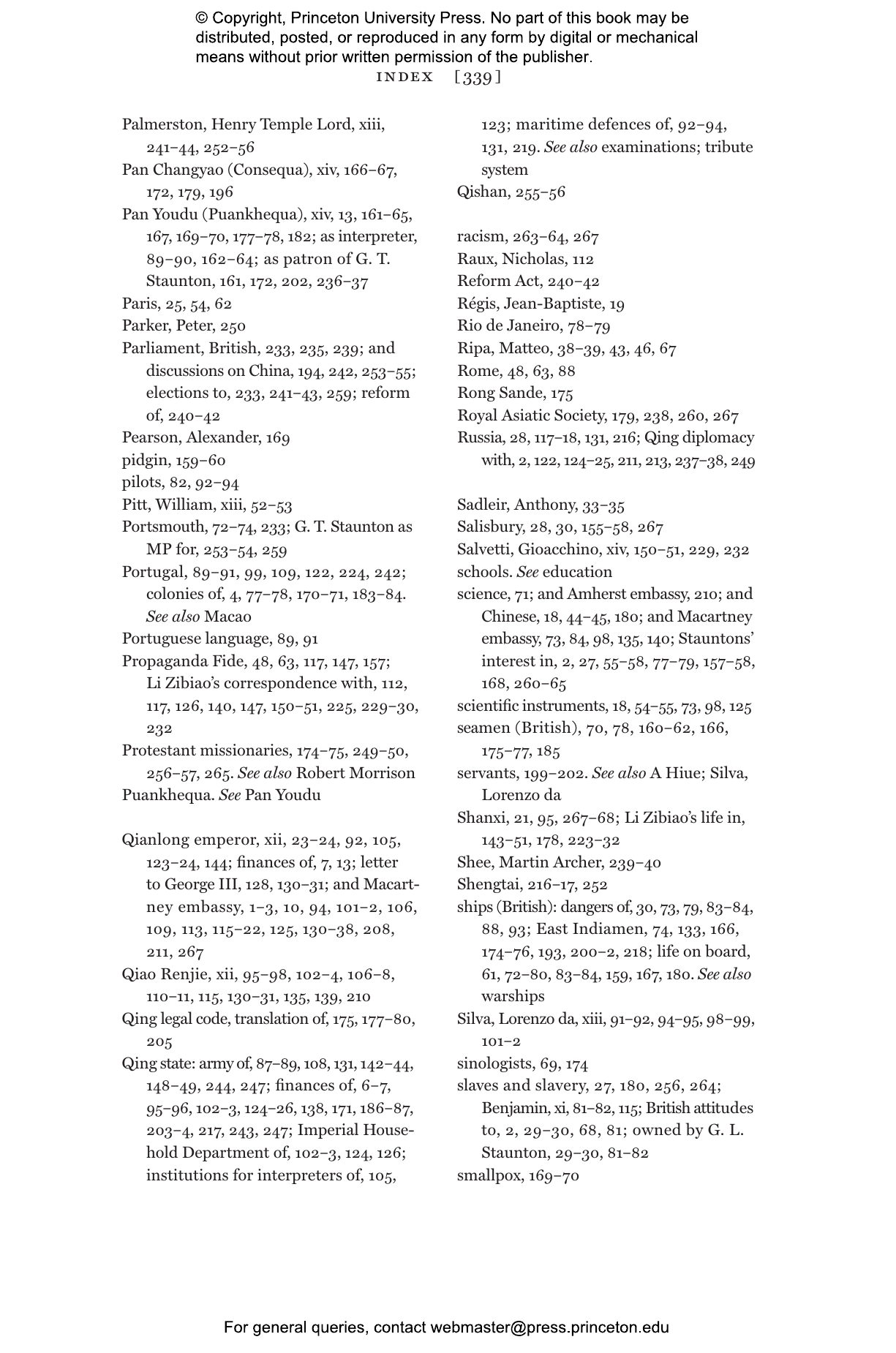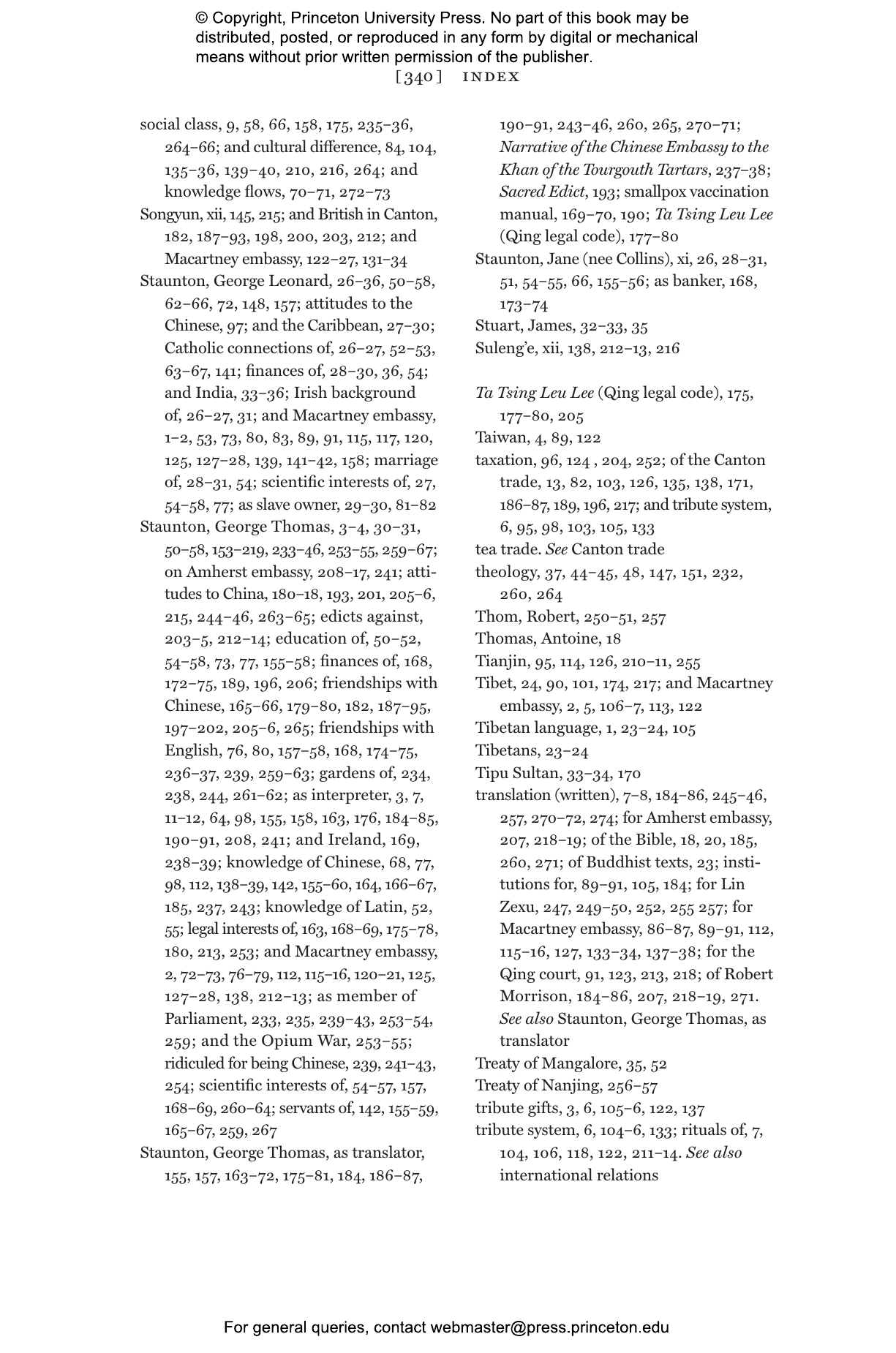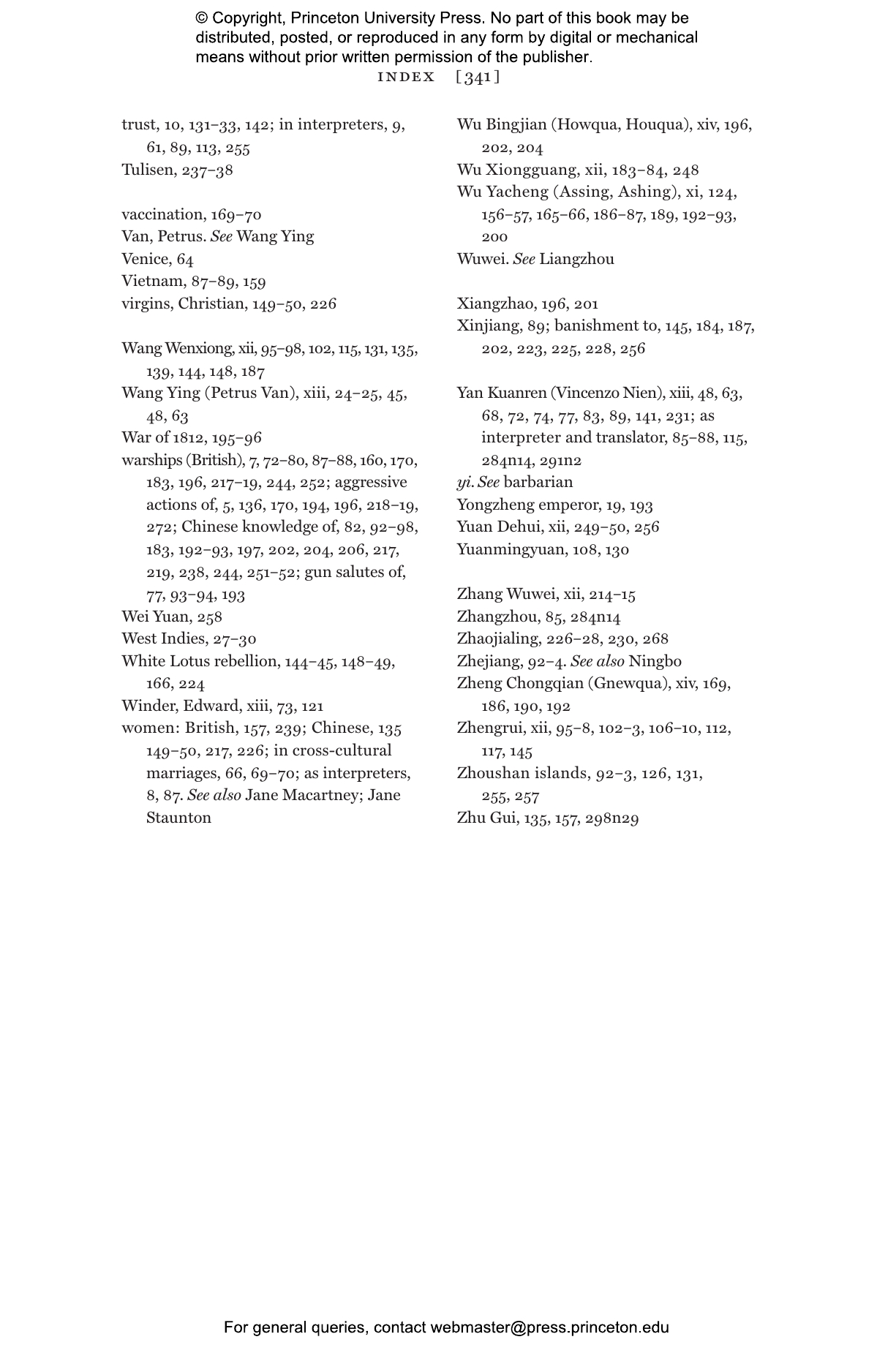The 1793 British embassy to China, which led to Lord George Macartney’s fraught encounter with the Qianlong emperor, has often been viewed as a clash of cultures fueled by the East’s lack of interest in the West. In The Perils of Interpreting, Henrietta Harrison presents a more nuanced picture, ingeniously shifting the historical lens to focus on Macartney’s two interpreters at that meeting—Li Zibiao and George Thomas Staunton. Who were these two men? How did they intervene in the exchanges that they mediated? And what did these exchanges mean for them? From Galway to Chengde, and from political intrigues to personal encounters, Harrison reassesses a pivotal moment in relations between China and Britain. She shows that there were Chinese who were familiar with the West, but growing tensions endangered those who embraced both cultures and would eventually culminate in the Opium Wars.
Harrison demonstrates that the Qing court’s ignorance about the British did not simply happen, but was manufactured through the repression of cultural go-betweens like Li and Staunton. She traces Li’s influence as Macartney’s interpreter, the pressures Li faced in China as a result, and his later years in hiding. Staunton interpreted successfully for the British East India Company in Canton, but as Chinese anger grew against British imperial expansion in South Asia, he was compelled to flee to England. Harrison contends that in silencing expert voices, the Qing court missed an opportunity to gain insights that might have prevented a losing conflict with Britain.
Uncovering the lives of two overlooked figures, The Perils of Interpreting offers an empathic argument for cross-cultural understanding in a connected world.
Awards and Recognition
- Winner of the Kenshur Prize, Bloomington Center for Eighteenth-Century Studies
- Shortlisted for the Kenshur Prize, Bloomington Center for Eighteenth-Century Studies
- Shortlisted for the Wolfson History Prize
- Shortlisted for the Cundill History Prize, McGill University
- A History Today Book of the Year
"Harrison digs equally in Chinese and European archives, finding abundant vivid material from which to reconstruct [Li and Staunton’s] stories, weaving them together to rewrite the opening chapter of Sino–British relations as a series of unfortunate events in which a word, a look or a gesture could alter the course of the encounter. . . . An invigorating re-vision. . . . Harrison’s strength is in narrating lives lived and reminding us that the consequences were never preordained."—Timothy Brook, Times Literary Supplement
"Today the fiasco of 1793 is the postulate for an elaborate paradigm that is supposed to explain China’s decline in power in the 19th century. . . . But the paradigm is problematic: it isn’t only ahistorical but, as Henrietta Harrison suggests in The Perils of Interpreting, it focuses on the wrong people."—Pamela Crossley, London Review of Books
"Harrison could not have picked two more fascinating men to focus her book on. Both Li and Staunton lived truly extraordinary lives and the reader is led vividly through each. . . . Not only is The Perils of Interpreting an empathetic portrait of two men, it also deftly reveals the critical importance of translation and of interpreters—for without them neither cross-cultural interactions nor cross-cultural understanding can even begin."—Sarah Bramao-Ramos, History Today
"Often the most readable books on Chinese history are those that use detailed accounts of the lives of individuals to illuminate the great events of their time. Oxford professor Henrietta Harrison’s The Perils of Interpreting: The Extraordinary Lives of Two Translators between Qing China and the British Empire is a fine example, providing a fresh description of the 1793 embassy from Britain’s King George III to the Manchu Qianlong emperor through the eyes of those who mediated, rather than those of the principals."—Peter Neville-Hadley, South China Morning Post Magazine
"[The Perils of Interpreting] reads like a swashbuckling adventure novel. . . . [A] vivid reconstruction of an era."—John Krich, Nikkei Asia
"[The Perils of Interpreting] takes a familiar story—the deteriorating diplomacy between Britain and Qing China from the 1793 Macartney Mission and the Opium War—and masterfully retells it through the lives of two translators."—History Today
"[Harrison’s] prose is pictorial and vivacious, effortlessly carrying the reader into a new domain of empathy and historical awareness. The unique and intimate stories of translators offer an antidote to simplistic accounts. . . . The result is a book that thoroughly transforms what we know about Sino-British encounters leading up to the Opium War."—Jenny Huangfu Day, Journal of Chinese History
"Marvelous."—Haun Saussy, Journal of the American Oriental Society
"The Perils of Interpreting offers extraordinarily fresh information deftly crafted into a narrative embracing biography, imperial history, maritime history, British political history, religious history, and the history of Chinese and British relations. Harrison, an adroit storyteller, designed the book as a chronologically told story of two men, two cultures, and two imperial powers attempting to communicate between worlds. . . . Harrison’s attention to interpretation, its delicacy, its omissions as well as its expressions reveals how power inheres in language, and power is as much in the hands of translators as in the hands of leaders of state. This fascinating, deeply researched, highly informed account is microhistory at its very best."—Carla Mulford, The Eighteenth-Century Intelligencer
"Harrison’s rich book opens up so many lines of inquiry that it is bound to produce a wealth of follow-up studies. Let us hope that they will be as eye-opening and enjoyable to read."—Eun Kyung Min, Eighteenth-Century Studies
"Fascinating."—Hamish Gobson, Think Scotland
"By comparing and contrasting the lives of the two interpreters, The Perils of Interpreting provides an informed understanding on the history of Sino-Western interactions and the world of the British and Chinese empires and would be a good read for historians and general readers alike."—Song-Chuan Chen, The Journal of British Studies
"[A] meticulous piece of research."—Matei Idu and Alina Pelea, Revue Internationale d'Études en Langues Modernes Appliquées
“This is a story about two interpreters, but it is so much more than that. The Perils of Interpreting is a powerful and deeply original exploration of two major empires, China and Britain, and the ways they understood each other. Bringing together a sweeping perspective of the Chinese-British encounter with empathetic portraits of the individuals involved, this book is essential reading for historians of China and Europe alike.”—Rana Mitter, author of Forgotten Ally: China’s World War II, 1937–1945
“Brilliantly researched and beautifully written, The Perils of Interpreting looks at the mirrored, intertwining lives of interpreters George Thomas Staunton and Li Zibiao. This is one of the most eye-opening books I have ever read on the early era of Chinese-British relations.”—Stephen R. Platt, author of Imperial Twilight: The Opium War and the End of China’s Last Golden Age
“Harrison’s multifaceted archival analysis adds a humanistic touch to the history of intercultural politics and shows that the more interpreters understand, the more suspicious they appear. The choices and influence of the Macartney embassy’s interpreters shaped not only their own fates, but also the historical narratives of Chinese-British relations, then and now.”—May Bo Ching, City University of Hong Kong
“This is a wonderful and important book. Providing a wholly new and poignant lens on one of the most famous episodes in the history of Sino-British relations, it focuses on the roles and lives of the translators who made communication between Qing China and Britain possible. Harrison offers extraordinarily rich and moving insights into the interactions between the Chinese and British governments, and the enormous challenges of promoting understanding and dialogue between geographically remote languages and cultures.”—Julia Lovell, author of Maoism: A Global History
“The Perils of Interpreting takes a brilliant historical look at cross-cultural experiences and friendship. Harrison narrates the meeting between a Chinese man who learned Latin in Europe and a young Englishman who learned Chinese while working in China. Their fascinating story of being between two cultures and the dangers in interpreting them is all the more topical now, and their experiences remind us of the vital importance of language and translation in the understanding of cultures today.”—Nicolas Standaert, author of The Interweaving of Rituals: Funerals in the Cultural Exchange between China and Europe


